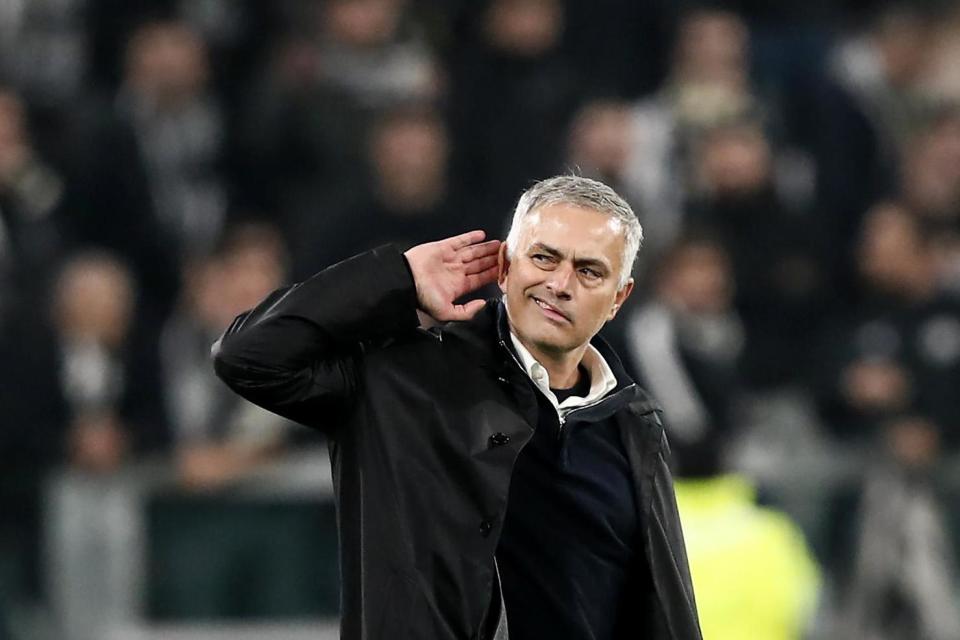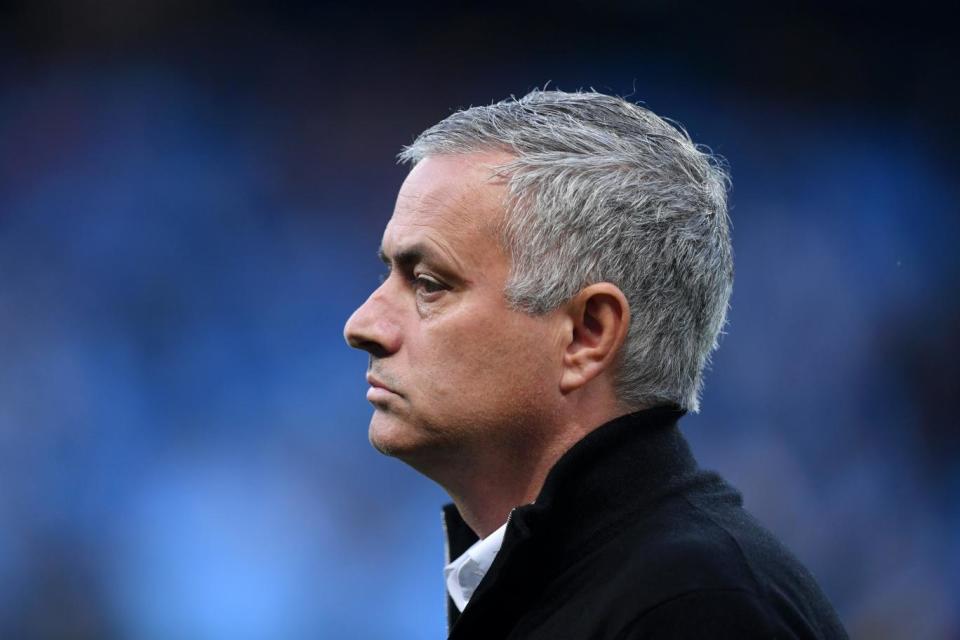Manchester United cannot hide from the truth despite Jose Mourinho's stat attack

Jose Mourinho insists last season’s second-place finish was an incredible achievement by Manchester United – and nearly a third of the way through this campaign, it’s one they are highly unlikely to repeat.
Sunday’s defeat to Manchester City leaves them 12 points adrift of Pep Guardiola’s champions and six points worse off than they were at the same stage last year.
Throw in goal difference and you might as well say City have a 13-point advantage over their nearest rivals last season.
As Mourinho pointed out following the chastening 3-1 defeat at the Etihad, statistics only tell so much of the story.
He will point to a run of fixtures that have only compounded United’s troubles; having to face City in the same week as they travelled to Italian champions Juventus took its toll.
Having to play back-to-back away games in the Premier League twice already this season has also had an effect, while trips to the previous two title-winners Chelsea and City were always going to be challenging.
As such, it could be argued that simply looking at United’s points total does not tell the full story, even if the table makes miserable reading for Mourinho at the moment.
Sitting seven points adrift of the top four, investors on the New York Stock Exchange, who will hear from executive vice chairman Ed Woodward on Thursday, will understandably be concerned.
For all the claims that success is no longer dependent on results on the pitch, Champions League qualification is a minimum requirement.
Failure to secure top four finishes ultimately cost David Moyes and Louis van Gaal their jobs.

So just how representative is the table when it comes to assessing United’s start?
United have lost four times in their first 12 games, compared to two defeats after the same number last season. But the truest comparison would be to analyse the corresponding fixtures from each campaign.
For instance, defeat at Brighton in the second game of the season sparked talk of a crisis for Mourinho, when, in fact, United merely repeated the result from last term, when they also came up short against Chris Hughton’s side and still finished runner-up to City.
The draw at Stamford Bridge last month represented an improvement, having lost there in November last year.
Away wins at Burnley, Watford and Bournemouth also emulated last season’s results – as did victories at home against Leicester, Newcastle and Everton.
But defeat to City on Sunday was in stark contrast to United’s 3-2 win there in April.
Had they emulated that victory this time around, they would have cut City’s lead over them to six points, thrust themselves back into the title picture and headed into the international break in an altogether brighter mood.
Instead the nature of the defeat emphasised the divide between the Manchester clubs and left Mourinho trying to salvage the campaign.
Defeat at home to Tottenham in August also came after winning the same fixture last term, while West Ham’s 3-1 win at the London Stadium is another game that leaves United worse off year-on-year, having taken a point from their last visit.
It is not possible to compare their home draw with Wolves, who were only promoted this season. But the fact they picked up maximum points in their three home games against last season’s newly-promoted sides, Newcastle, Brighton and Huddersfield, is another cause for concern.

Taking Wolves out of the equation and comparing the other 11 corresponding fixtures, United collected 25 points last season, as opposed to 19 this.
And the biggest change in their fortunes has come against last term’s top four rivals in the form City and Spurs, who have reversed their results against United.
Either way United are tracking six points worse off, no matter how you assess the two campaigns.
No matter how dismissive Mourinho is of stats-based analysis, that is one figure he must address.

 Yahoo News
Yahoo News 